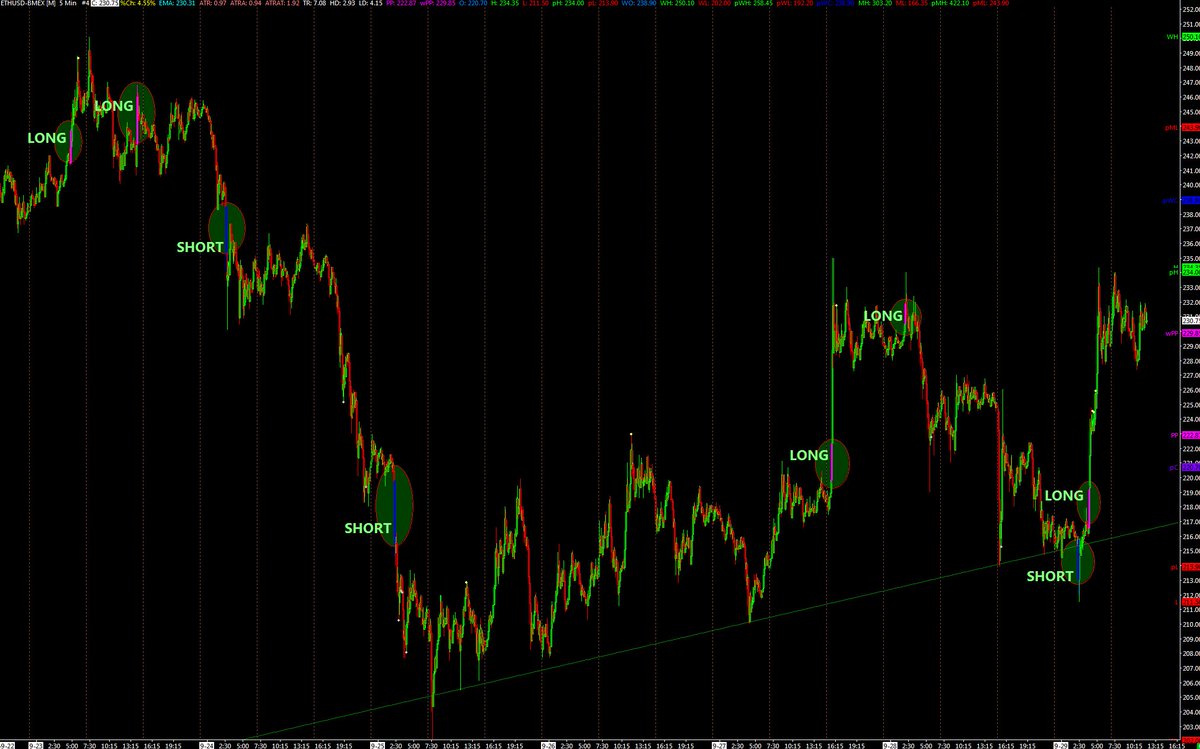1/n. McKinsey on #Blockchain's strategic value.
- It doesn't have to be a disintermediator to generate value. This encourages permissioned commercial applications.
- It's short-term value will be predominantly in reducing cost.
- It's 3-5 years away from feasibility at scale.
- It doesn't have to be a disintermediator to generate value. This encourages permissioned commercial applications.
- It's short-term value will be predominantly in reducing cost.
- It's 3-5 years away from feasibility at scale.
2/n. Blockchain’s core advantages are decentralization, cryptographic security, transparency, and immutability. It allows information to be verified and value to be exchanged without having to rely on a third-party authority.
5/n. Benefits from reductions in transaction complexity and cost, as well as improvements in transparency and fraud controls can be captured by existing institutions. Thus the commercial model most likely to succeed in the short term is permissioned rather than public blockchain. 

6/n. Blockchain might have the disruptive potential for new operating models, but its initial impact will be operational efficiencies. Cost can be taken out of existing processes by removing intermediaries or administrative effort of record keeping and transaction reconciliation.
7/n. Certain industries’ are inherently more suited to blockchain solutions, such as financial services, government, and healthcare.
8/n. Financial services’ core functions of verifying & transferring information/assets closely align with blockchain.
Blockchain solutions address:
-cross-border payments
-trade finance
-trade settlement
-regulatory reporting
90% of major banks are experimenting in blockchain.
Blockchain solutions address:
-cross-border payments
-trade finance
-trade settlement
-regulatory reporting
90% of major banks are experimenting in blockchain.
9/n Governments’ record-keeping and verifying functions can be enabled by blockchain infrastructure to achieve large administrative savings. Public data is often siloed among agencies. More than 25 governments are actively running blockchain pilots supported by start-ups.
10/n. Healthcare. Blockchain-based healthcare records can not only facilitate increased administrative efficiency, but also give researchers access to the historical, non–patient-identifiable data sets crucial for medical research.
11/n. Smart contracts could give patients the ability to commercialize data access e.g. patients could charge pharmaceuticals to access their data in drug research. Blockchain also being combined with IoT sensors to ensure integrity of cold chain for drugs, blood & organs.
12/n. Over time, the value of blockchain will shift from cost reduction to enabling new business models. One of the most promising is the creation of a distributed, secure digital identity—for both consumer identity and the commercial know-your-customer process.
13/n. The strategic value of blockchain will only be realized if commercially viable solutions can be deployed at scale. Meaningful scale remains three to five years away for several key reasons.
14/n. Lack of common standards & clear regulations is a major limitation on blockchain applications’ ability to scale. Standards can be established with ease if there is a dominant player or government agency. e.g. governments could make blockchain land registries legal records.
15/n. Immaturity of blockchain technology increases switching costs. Organizations need trusted enterprise solutions as most cost benefits will not be realized until old systems are decommissioned. Few start-ups have the credibility & technology stability for deployment at scale.
16/n Blockchains' technical configurations are a series of design choices in which the levers on speed (size of block), security (consensus protocol), and storage (number of notaries) can be selected to make most use cases commercially viable.
17/n. Assets must be able to be digitized. Assets like equities, which are digitally recorded and transacted, can be simply managed end to end on a blockchain system or integrated through application programming interfaces (APIs) with existing systems.
18/n. Connecting physical goods to a blockchain requires technologies like IoT and biometrics. This connection can be a vulnerability as the physical item or IoT sensor can be tampered with. e.g. certifying chain of custody of commodities would require a tagging system like RFID.
19/n. Blockchain’s major advantage is the network effect. While benefits increase with size of the network, so does the coordination complexity. Natural competitors need to cooperate, and resolving this coopetition paradox is the hardest element in the path to adoption at scale.
20/n. For example, a blockchain solution for digital media, licenses, and royalty payments would require a massive amount of coordination across the various producers and consumers of digital content.
21/n. The issue is agreeing on the governance decisions around how the system, data, and investment will be managed. Overcoming this issue often requires a sponsor, such as a regulator or industry body, to take the lead.
22/22. McKinsey is the world's #1 management consulting firm. This is the source: mckinsey.com/business-funct…. It has some other jewels and interactive charts.
• • •
Missing some Tweet in this thread? You can try to
force a refresh













